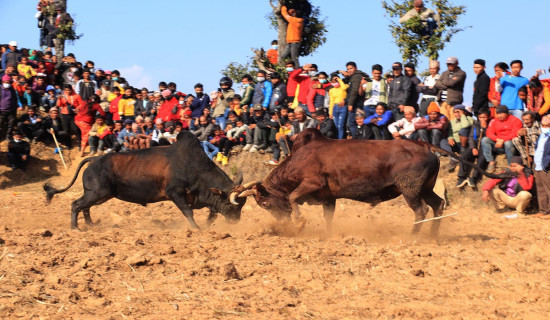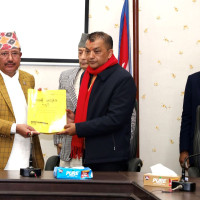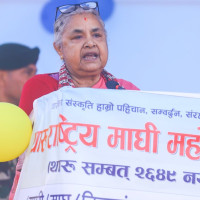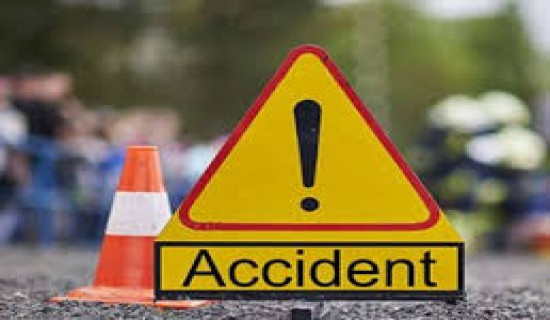- Friday, 16 January 2026
Democratic Republic Should Meet Civic Aspirations
A republic is simply defined as a form of government that gives no place to monarchy and hereditary ruling dynasty. Political scientists agree that the concept of republic owes its genesis to Rome in 509 BC. It is by then that the Romans had toppled the monarchy and established a republican form of government. It was a government in which citizens elected representatives to rule on their behalf in concurrence of the civic wishes and aspirations.
In a republican form of government state sovereignty lies in the authority of the citizens. Etymologically speaking, the word republic comes from the Latin words res publica, which connotes the supremacy of public. For example, countries like the United States of America and India are democratic republics. However, the United Kingdom and Canada though developed democracies are not republics since they have a monarch as head of the state in both the countries.
In countries with a king or monarchy, free and fair democratic elections may be held and democracy can flourish well. Such a polity is called a constitutional monarchy, not republics. A constitutional monarchy resembles a republic because the constitution divests power from the monarch and installs institutions and system conforming to a philosophy of republicanism allowing the King to reign as the symbolic head of the state
. Nepal was a constitutional monarchy until 2008 when the people’ revolted and overthrew the monarch to replace it with a president elected by an electoral college. Nepal has a history of rapid political changes. It has transitioned from an autocratic regime to a democratic system in a short period of time, gaining valuable experience. After the overthrow of the autocratic Rana rule in 2007, significant transformations have occurred in Nepal's political and state systems in rapid succession.
The head of the state in a republic is generally a person who has been chosen by the citizens by direct election or by a group of elected representatives to act. In some countries, the president is elected directly by the people and exercises a lot of executive political power given. In others, the president does not hold much direct power but is important in the legal system for other reasons. In Nepal the president is the head of state but does not hold executive authority. Similar is the case of India. On the contrary the US president is the real executive head of the state and government as such. Political scientists in the US have done an enormous amount of research on the functioning of the republican form of government. The subject was also discussed seriously at the time of when the US constitution was authored more than two centuries ago.
One of the founding fathers of the US constitution, James Madison had emphasized popular sovereignty and majoritarian control as among “the distinctive characteristics of the republican form of the government. According to Madison”, a republic government derives all its powers directly or indirectly from the great body of the people, and is administered by persons holding their offices, for a limited period mandated by the people.
As a democratic republic, Nepal celebrates Republic Day today to mark the establishment of Nepal as a federal democratic republic together with the abolition of the hereditary monarchy. The hereditary monarchy was toppled in Nepal one and half decade back, signifying a monumental shift in Nepal's political system and governance. The journey towards republicanism in Nepal was the result of a long struggle interspersed by a series of political movements. The monarchy, which had been the dominant political institution for centuries, came to an end with the declaration of a republic. This ushered in a new era in Nepal's history, highlighting the values of democracy, equality, and representation.
The celebration of the Republic Day today should serve as a time for reflection and introspection in Nepal. It should prompt the political actors and stakeholders to contemplate the progress achieved in terms of democratic governance and social development so far and areas where much more needs to be done. Surely, one can say with all certainty that the democratic federal republic has reinforced the principles of inclusivity, human rights, subsidiarity and federal governance. Despite these positive achievements political instability has been a recurring problem in Nepal. The federal constitution provides for a mixed election system combining both majoritarian and proportional representation as a result of which no single party secures the majority to form the single party government.
The incumbent coalition government led by the Maoist leader Puspa Kamal Dahal 'Prachanda' should perhaps be the tenth in the past one decade. It is also the 30th government formed over the last three decades. Most governments formed over the years have been the coalition ones. Politicians have been squabbling over who gets to be prime minister or gets key ministerial
portfolios. The democratic federal republic has thus been confronted with volatility and instability of politics. This is due to the fact that a single political party has been unable to win a majority of seats in parliamentary elections, thus making it necessary for the parties to form a rag tag coalition.
A political party should placate, bargain and cobble together almost half a dozen parties to manage to form government. In such a situation the coalition governments face the crisis of existence and survivability. As a consequence, delivery and performance cannot get priority. In order to make democratic republic working to address the aspirations of the people, it is
therefore necessary to review and reform the constitutional arrangement so that our democratic republican institutions become efficient and effective.
(The author is presently associated with Policy Research Institute (PRI) as a senior research fellow. rijalmukti@gmail.com)








-square-thumb.jpg)







